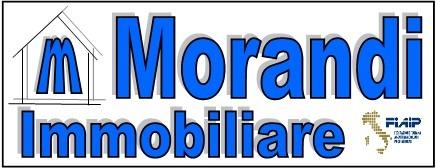This programme focuses on issues of multilateral cooperation; international responsibility; Responsibility to protect and Southern approaches to international law. Another focus is on social issues of (in)equality; the international participation of developing countries; and economic and social progress. Students also gain knowledge and skills to solve business problems such as market access, import and export conditions for goods and services, compulsory licensing for essential medicines, and establishing subsidiaries in foreign jurisdictions. Students will also gain knowledge about economic inequality; Economic growth and the position of developing countries in the multilateral (global) economic system. Faith has served on the African Regional Court of Trial ELSA as a panelist and on the Gauteng Regional Moot Court Tour. She has published articles on international trade and public law issues. She holds an LLB (Wits University), a postgraduate degree in law (Wits) and an LLM (magna laude, University of Bern). Fola is a Social and Economic Justice Fellow at the London School of Economics and a Visiting Scholar at the University of the Witwatersrand. Fola was a clinical advocacy researcher at Harvard Law School and oversaw clinical projects on business and human rights. He holds a PhD from Wits University and an LLM from the University of Cape Town. The program is suitable for candidates with a legal background who work in or are interested in international trade law.
These include commercial lawyers, legal advisers to accounting firms dealing with commercial matters, individuals in the standards industry, international relations professionals, and government officials (particularly those working in the Department of Trade and Industry (DTI) and crop protection measures). Students will gain a critical understanding of the role and function of law in an international context, including the functioning of institutional mechanisms to enforce international law. In its regional section, EYIEL 10 examines recent developments in the US and the EU, including the US trade policy strategy towards China and NAFTA reform. In its institutional part, EYIEL 10 focuses, inter alia, on the role of the rule of law in relation to the current practice of the International Monetary Fund and the WTO Appellate Body as an international court. In addition, there is an overview of ongoing WTO cases. Finally, the volume contains a section with review essays on recently published books in the field of international economic law and international investment law. For more information, please contact the Student Call Centre +27 (0)11 717 1888 or submit a request to www.wits.ac.za/askwits. Topics covered by the survey include the invocation of security exceptions (e.g. in the trade wars between China and the United States), the resolution of trade disputes, the use of trade mechanisms/rules for economic growth, the relationship between regional trade agreements and the WTO, and the position of developing countries in the multilateral economic system. Previously, Faith worked at the Mandela Institute of International Economic Law, Faculty of Law, University of the Witwatersrand, where she conducted research on international business law and international trade issues. She also worked at ProBono.Org as legal counsel, where she dealt with matters of public interest and advised clients. Faith conducts economic analysis, research and advice on international trade, commercial and competition law, and trade policy.
She has conducted independent research for consultants and academics in international trade law, competition law and international investment law. The LLM in International Law provides students with the skills to research, teach and apply international legal principles in jurisprudence, litigation and advisory roles. Most importantly, students develop their own perspectives on the role and functioning of law in international society. Volume 10 of the JJET is dedicated to the 100th anniversary of the International Labour Organization (ILO) on the relationship between transnational labour law and international business law. As one of the oldest UN agencies, the ILO has made significant progress on rights and working conditions. The contributions to volume 10 of EYIEL assess these achievements in light of current and future challenges. The main ILO legal instruments and documents are analysed, as well as the impact of labour standards on trade and investment agreements.
